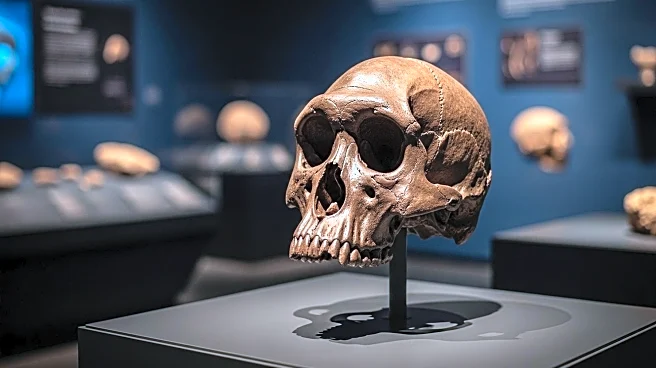What is the story about?
What's Happening?
A million-year-old skull found in China suggests that Homo sapiens may have emerged at least half a million years earlier than previously thought. The skull, named Yunxian 2, was initially believed to belong to Homo erectus but is now considered an early version of Homo longi, a sister species to Neanderthals and Homo sapiens. This discovery, published in the journal Science, indicates that early versions of Neanderthals and Homo sapiens may have co-existed much earlier than believed. The analysis, led by scientists from Fudan University and the UK's Natural History Museum, challenges existing timelines and suggests a longer period of coexistence among human species.
Why It's Important?
The study could dramatically shift the timeline of human evolution, suggesting that large-brained humans evolved much earlier than previously thought. This has implications for understanding the interactions and interbreeding between different human species over time. The findings challenge the traditional view of human evolution and may lead to new theories about the geographical origins of Homo sapiens. If supported by further evidence, this research could redefine the evolutionary relationships between early human species, impacting fields such as anthropology and genetics.
What's Next?
Further research is needed to confirm the study's conclusions, with scientists calling for more evidence from genetic data and additional fossil analyses. The discovery raises questions about the possibility of Homo sapiens evolving first in Asia, although current evidence is insufficient to support this claim. Researchers plan to incorporate human fossils from Africa and Europe into their analysis to refine the evolutionary timeline. The study's findings may prompt further debate and investigation within the scientific community.
Beyond the Headlines
The discovery highlights the complexity of human evolution and the need for more comprehensive studies to understand the interactions between different human species. The research suggests that East Asia may hold significant clues to human evolutionary history, challenging the view of Africa as the sole cradle of humankind. The findings underscore the importance of integrating genetic and fossil evidence to build a clearer picture of human origins.
















